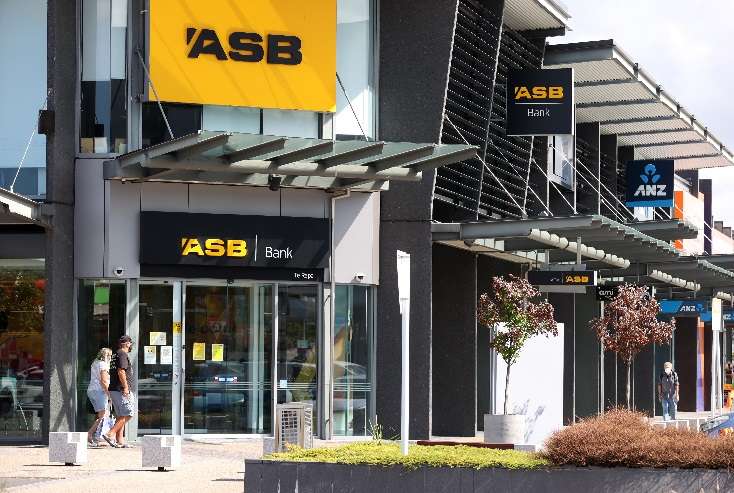Rising interest rates are putting the squeeze on Kiwi finances, with the number of homeowners failing to pay their mortgage on time on the rise.
Credit agency Centrix reported there were 18,800 mortgage accounts that had missed a payment in July this year, a 31% increase on July last year, although lower than March, when 19,300 mortgage accounts were reported as past due.
The figures come amid a new round of hikes in mortgage interest rates. ANZ, ASB, BNZ and Westpac have all bumped up their home loan rates in the last weeks, with standard rates for one-year and two-year terms well above 7% and stretching towards 8%.
The jumps mean homeowners who are now rolling onto higher rates are having to find on average more than $1200 extra a month.
Start your property search
For some homeowners the cost of servcing their mortgage could be a lot higher. According to Centrix, 240,000 mortgage-holders in New Zealand owe more than $500,000 to their lender, with 42,500 owing less than $50,000.
Data released by the Reserve Bank of New Zealand in July shows that the number of homeowners adding to their mortgage, to fund big ticket purchases or home renovations, has nearly halved since 2021.
The value of mortgage top-ups in the 12 months to July 2023 was $7.7 billion, down from $13.6 billion in the 12 months to July 2021.
It’s a trend that mortgage advisers are seeing in their day-to-day work.
Mortgage adviser Neville Modlin of The Lending Team said rising interest rates had decline in top-ups, with many homeowners worried about how to meet existing payments, but other factors include and increase in bank test rates and the October election.
Also likely to have had an impact were Cyclone Gabrielle and the Auckland floods, which will have resulted in some renovation work requiring top-ups being covered by insurance claims.
Loanmarket adviser Rodney King suspects that there may be an even greater drop off in top-ups for renovations such as new kitchens or extra rooms than the RBNZ numbers suggest.
“The top ups we are seeing [tend] to be for energy efficient purposes, such as hybrid/EV cars, solar panels or double glazing to homes, taking advantage of banks’ various offers to encourage these loans.”
Read more:
- In a fix: Should you gamble on one-year mortgage rates?
- Tony Alexander: The worse China looks, the better the outlook for Kiwi borrowers
- National vows to bring back tax breaks for property investors
However, Jeff Royle, adviser at iLender.co.nz, thinks some borrowing has moved from top-ups to general refinance, with borrowers going to new lenders to get cash back offers or better terms.
He said that while there was not a lot of difference in interest rates between lenders, there was quite a difference in how the banks calculate income.
Campbell Hastie, of Hastie Mortgages Limited, said client top-ups had dropped off. “In terms of numbers, it’s about 40 loans [last year] and 15 loans now, so quite the drop. Most of these loans are under $100,000 - more like $20,000 to $50,000," he said.
“With interest rates going up and the cost of living going up, I think people are more focused on getting by than trying to do more. Joe Public has also got the message that the CCCFA [Credit Contracts and Consumer Finance Act] meant their KFC habit would kill their chances of getting a loan. While things have softened in that regard, the message is still in people’s brains.
“Put those things together [and there is] less demand for top ups, and lending full stop. Are Kiwis focused on paying their mortgages off instead? Not as such. Focused on getting by rather than focused on principal reduction is probably more accurate."

ASB has hiked mortgage and term deposit rates. Photo / Fiona Goodall
He added: “We are seeing more lump sum payments at refix time than in previous years, [with] similar sized amounts to your average top up, such as $20k to $50k. People with cash lying around are not spending it: they are either holding it in reserve or dropping it into the mortgage which helps soften the blow.” He is also seeing more “green” loans for hybrid/electric cars or solar panels.
Jose George, general manager at Canstar, said surveys showed New Zealanders were in a "hunker down" phase right now.
"If Kiwis do find themselves with some spare cash, overpaying the mortgage is a smart move. Every extra payment makes a big difference to the interest ultimately paid over the lifetime of the loan,” he said.
"There are other ways to crunch down the mortgage repayments, too. For example, if you are coming up for a refix you can also lower the term of the mortgage, which has the effect of increasing payments and decreasing interest over time.
"Refixing also gives you an opportunity to repay a bulk sum without being charged any break fees. If you do have a bulk amount you can repay now, it will be worth checking with your bank as to any break fees. There may be none given we’ve been in a rising interest rate market.
"If you’re nervous about losing access to extra funds you can always park them in a term deposit or savings account. Term deposit rates are really attractive right now and offer safe, easy returns. Given we’re in such a difficult financial time, this could well be a good option.”
Use the search field to find out the best mortgage deals available today.

















































































